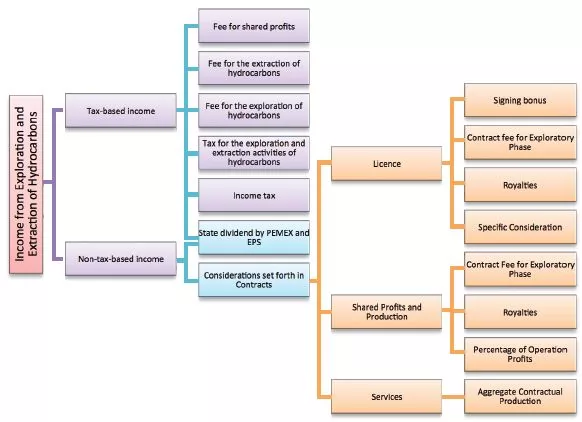Intellectual Property Office Publishes Report On The Value Of Intellectual Property
By Matt Watts
The Intellectual Property Office (IPO) has produced a report noting key action points in relation to intellectual property (IP).
One of the main findings of the report recently published by the IPO was the need for it to be more active in fostering improved understanding of IP and its value to businesses (including SMEs) and lenders, through the use of business tools and associated guidance.
The UK has a rich heritage of innovation and inventiveness. The majority of business investment, are now in intangible goods, ideas and creativity, according to the IPO. It is therefore crucial that entrepreneurs and innovators are able to place a value on this investment.
Research frequently shows that IP-rich businesses can struggle to access the finance they need to build success. The IPO will therefore focus on:
- building a better understanding of IP in business among the financial services communities
- enabling a more productive dialogue between businesses and lenders
- demonstrating the value of IP assets as collateral.
In particular the IPO has concluded that it will:
- actively promote improved understanding of IP and its value to business through its 'IP for Business' tools
- develop real-life case studies demonstrating how businesses have been able to secure finance, attract new business or increase profitability through effective IP management
- work in partnership to promote an understanding of IP across the financial services sector
- lead the development of an 'IP Finance' toolkit to include templates and guidance on identifying and managing IP assets
- encourage the development of appropriate insurance policies
- undertake an assessment of existing IP trading platforms
- work with operators of risk-sharing schemes with a view to establishing how
IP might be used in credit scoring to help reduce overall risk. www.ipo.gov.uk/ipresearch-bankingip-2014.pdf
Register Of Company Beneficial Ownership
By Rajesh Sharma
Plans to set up a central registry of beneficial ownership, applicable to companies registered at Companies House, could soon come into effect.
The Department for Business Innovation and Skills has published further proposals – to be enacted as soon as possible – concerning "transparency and trust" for UK company ownership. This includes setting up a central registry of company beneficial ownership.
The proposals
The overall proposals include:
- A recommendation for a central registry of beneficial ownership of companies based on the definition of beneficial ownership used for anti-money laundering purposes.
- A prohibition on the creation of new bearer shares and a set period of time for existing bearer shareholders to surrender their shares for conversion to registered shares.
- A prohibition on the use of one company as the director of another company, but with some specific exemptions.
- Further information will be made available on the general statutory duties of directors, to increase awareness of the potential consequences of breaching these duties in certain circumstances.
The scope of the rules with respect to beneficial ownership will apply to UK corporate bodies that register information at Companies House, such as limited companies and Limited liability Partnerships, unless an exception applies. Exceptions apply for those already in compliance with relevant provisions of the Financial Conduct Authority Disclosure and Transparency Rules and those with securities listed on a regulated market, subject to equivalent disclosure requirements.
Information required
The information to be held on the beneficial ownership register will include details of any beneficial owner with shares or voting rights giving them a 25% or more interest in a company.
Where the company knows or has reasonable cause to believe that there are other beneficial owners, they will be required to obtain and provide information on that owner too.
Individuals with a qualifying beneficial interest in a company will need to disclose this to the company, as significant investors in listed companies are already required to do.
Companies will be required to hold information on and register at Companies House the full name of their beneficial owners, along with their date of birth, nationality, country or state of usual residence, a service and a residential address, and details of their interest in the company – although details of residential addresses and full dates of birth will not be publically availble.
It will be possible to apply to the Registrar to prevent the full information of beneficial owners from being publicly disclosed, in exceptional circumstances. However, specified UK and overseas enforcement authorities will be able to access protected information held at Companies House.
Modernisation Of The Taxation Of Corporate Debt And Derivative Contracts
By Colin Aylott
HMRC has issued a technical note providing an update on the Government's position on the project to update the taxation of corporate debt and derivative contracts. Most of this will be included in the Finance Bill 2015 and will take effect for accounting periods beginning on or after 1 January 2016. Some changes, particularly the changes to anti-avoidance, seem likely to apply earlier.
The Government recognises that it needs a balance between dealing with the problems and uncertainties of the current rules on the taxation of corporate debt and derivative contracts and creating further issues by making changes. The Government also recognises the potential problems with upcoming accounting changes, such as FRS102. The proposals have therefore been categorised under three headings.
1. Priority measures to be pursued for implementation
- Clarifying the basis for the regime, i.e. the starting point is the amount recognised for accounting purposes, but with clear overrides, probably using specific exemptions.
- Basing taxable amounts on amounts recognised in profit or loss for accounting purposes, rather than using amounts recognised in the wider accounts.
- Aligning tax and accounting definitions more closely.
- A new regime-wide anti-avoidance rule based on a purposive test, with the intention that this operates against arrangements aimed primarily at obtaining a tax advantage in terms of taxable amounts under the regime.
- Clarifying the application of the regime to loan relationships and derivative contracts held by partnerships with corporate members, recognising that this is an area of inherent difficulty.
- A new rule to provide tax relief in cases of 'corporate rescue', so that it applies to a wider range of corporate rescues and allows early remedial action to avert financial distress.
- Clarifying the treatment of undated or 'perpetual' instruments with limited repayment rights.
- Addressing issues with the 'late-paid interest' rule, as there are concerns over its use as a means of maximising the availability of loss relief.
- Updating the 'Disregard Regulations' and Change of Accounting Practice Regulations. This point should be particularly helpful given the accounting changes being brought in, for example, under FRS102.
2. Lower priority measures only to be pursued on a conditional basis for possible implementation
- Changes to the 'unallowable purpose' rules to make these clearer for taxpayers.
- Adjustments to the connected party and group continuity rules – these would not be substantial changes to the operation of the regime but would be intended to ensure more clarity and better focus.
- Convertible loans and other hybrid instruments. The rules are complex and may require a greater rewrite but this is not a priority for now.
- Amendments to the foreign exchange and hedging rules to make them operate more effectively.
3. Proposals not to be pursued
- Proposals for fundamental change to the group continuity rules. It is accepted that the rules 'work' adequately as currently drafted.
- Excluding non-trading foreign exchange movements from tax.
- Combining the loan relationships and derivative contracts rules into a single part of the act. As this would be a substantial exercise it is not warranted at present.
- Fundamental changes to the hedging aspects of the 'Disregard Regulations'. While the complexity of the rules is undesirable, it has been accepted that amending or abolishing these may cause significant tax issues.
The corporate debt and derivatives rules are significant and complex areas of tax legislation. The proposed rewrite is a major exercise and it is good that the Government and HMRC have listened to responses to the consultations and are not seeking to rush through too many changes in 2014.
Stamp Duty And Stamp Duty Reserve Tax Exemption For Growth Markets
By Nick Wallis
It has been proposed that an exemption should be provided from stamp duty and stamp duty reserve tax for transfers of interests in growth markets.
It is envisaged that the exemption from stamp duty and stamp duty reserve tax for transfers of interests in growth markets will be effective from 28 April 2014 or approval of the market in question as a growth market. A growth market must be a recognised stock exchange and meet one or both of two conditions in order to qualify for 'recognised growth market' status.
- A majority of companies trading on the market must be companies with market capitalisations of less than £170m in the qualifying period, or
- The market's rules must require that companies seeking admission demonstrate at least 20% compounded annual growth in revenue or employment over the three years preceding admission.
Applying for growth market status
Applications for recognised growth market status can be made to HM Revenue & Customs (HMRC) in writing – although there is no specific form to complete – and HMRC must approve the relevant market.
The following is a list of recognised growth markets that have been pre-approved.
| Name | Address | Effective Date |
| Alternative Investment Market | 10 Paternoster Square, London EC4M 7LS | 28 April 2014 |
| Enterprise Securities Market (ESM) | 28 Anglesea Street, Dublin 2 | 28 April 2014 |
| GXG Markets A/S | Levysgade 14, DK-8700 Horsens | 28 April 2014 |
| High Growth Sector | 10 Paternoster Square, London EC4M 7LS | 28 April 2014 |
| ICAP Securities and Derivatives Exchange Limited (ISDX) | 2 Broadgate, London EC2M 7UR | 28 April 2014 |
We have taken great care to ensure the accuracy of this newsletter. However, the newsletter is written in general terms and you are strongly recommended to seek specific advice before taking any action based on the information it contains. No responsibility can be taken for any loss arising from action taken or refrained from on the basis of this publication. © Smith & Williamson Holdings Limited 2014. code NTD188 exp: 31/08/14


